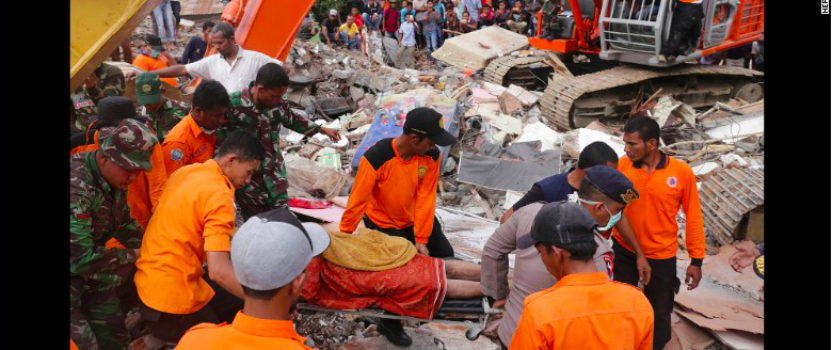Knowledge and Coordination
| By Ennio V. Picucci |
In the immediate aftermath of disasters, coordination among different actors is key. Coordination has the potential to make disaster response faster by avoiding the overlapping of response activities of different actors which can ultimately lead to saving more lives and alleviate human suffering in general.
The recent earthquake that shook the Aceh region in Indonesia on the 7th of December 2016 and which killed 103 people, injuring 1000 more, showed that in the Asia-Pacific region there is a high density of stakeholders involved in the response to disasters. In Aceh, a wide range of actors including governmental agencies, military, multilateral organisations, local NGOs and civil society were present in the immediate aftermath of the earthquake.
It was observed that many of the organisations involved in response activities such as search and rescue, assessment and the distribution of aid packages deployed relatively small teams of approximately 3-5 people. Having various small teams in the same area makes the coordination of response activities more challenging since it is not always known what their capacities are and what the respective activities encompass. It is therefore of importance to understand who the actors are, how they coordinate with each other and where there is room for improvement in the future.
The research team of the Choped-Asia projects aims at creating knowledge about established and emerging actors and their coordination with others in order to maximize the efficiency of coordination in disaster operations in the near future.
(More about the earthquake on this CNN link.)

